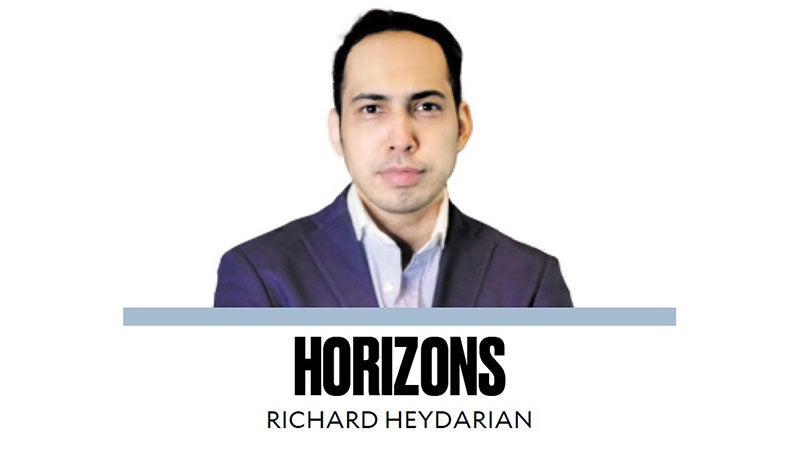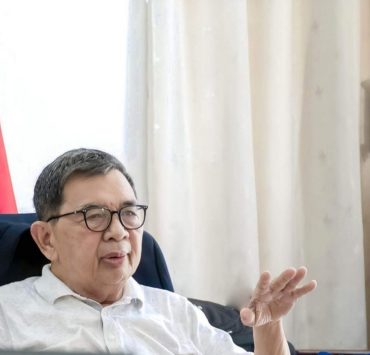Marcos: A ‘Good Machiavelli’?

Niccolò Machiavelli, arguably the greatest (and most controversial) late-Renaissance thinker, counseled: “One must therefore be a fox to recognize traps, and a lion to frighten wolves.”
Since their surreptitious return to the Philippines following a few years of luxurious exile in Hawaii, the Marcoses pulled off one of the most successful “counter-revolutions” in contemporary history.
Well before TikTok and social media transformed our politics, the Marcos dynasty had already managed to steadily regain its foothold in national politics with minimal resistance. By 2010, the scion of the family, Ferdinand Marcos Jr., seamlessly assumed a seat at the country’s highest legislative body—notably, just as Benigno Aquino III cruised to power based on a “good governance” platform.
Albeit narrowly losing the vice-presidential race in 2016, he managed to engineer an incredible political comeback with political cunning and calculation by securing a fateful alliance with the Dutertes, who grudgingly joined the “UniTeam” to stave off a progressive-liberal “Pink” alliance in the 2022 elections.
Thanks to his self-mastery, namely refusing to directly engage his critics, and heavily curated campaign strategy, which portrayed him as a candidate of “unity,” Marcos Jr. cruised to victory beyond his wildest imagination.
As soon as he returned to Malacañang, now President Marcos embarked on a global publicity campaign to, ostensibly, “reintroduce” the Philippines but also rehabilitate his notorious family’s reputation in the West. From Washington to Tokyo and Berlin, I have repeatedly stumbled upon Western policymakers almost fawning over Mr. Marcos, who, in an incredible turn of events, is suddenly seen as a “democratic leader” of a “frontline state” in Asia. Clearly, their reference point was Rodrigo Duterte, who had set the bar to the lowest level after six years of disastrous foreign policy.
As icing on the cake, a growing number of opposition figures also began to warm up to Mr. Marcos, who rightly ended his predecessor’s deadly drug war and pro-China policies. In many ways, Mr. Marcos embodied the Machiavellian virtues of foxlike politics like no other Filipino leader. There was, however, one problem with his strategy: the Dutertes!
Having enjoyed impunity throughout decades in Davao politics and relishing despotic privileges during six years of the patriarch’s presidency, the House of Duterte naturally felt entitled to power. In fact, the Dutertes could never fathom a “junior partner” position under Mr. Marcos’ presidency. After all, Duterte saw the namesake son of our former strongman as nothing but a prodigal son and a “weak leader,” if not worse.
The Dutertes, however, have two major weaknesses. On one hand, they could potentially face prosecution for alleged crimes against humanity under the aegis of the International Criminal Court (ICC). But, the notorious dynasty is also vulnerable on another front, namely their political intercourse with China.
“I am horrified by the idea that we have compromised, through a secret agreement, the territory and the sovereign rights of the Filipino,’’ Mr. Marcos exclaimed following Beijing’s revelation of a secret “gentlemen’s agreement” over the Ayungin Shoal.
“For me, it’s clear that they hid something—they had discussions that were kept from the people,” Marcos added, implying something grievous if not potentially treasonous took place under his predecessor. After all, China is claiming that Duterte had effectively agreed to let nature take over the sinking BRP Sierra Madre, our de facto base over the shoal well within our exclusive economic zone. This would have paved the way for the loss of yet another Philippine feature in the South China Sea.
It didn’t take long, however, before Mr. Marcos reverted to his foxlike politics by emphasizing “unity,” downplaying the former president’s personal attacks, as well as lawyering for his vice president’s conspicuous silence on the West Philippine Sea disputes. One could argue that this was a classic case of, “Keep your friends close, [but] keep the Dutertes even closer.”
But one also wonders whether this is also a case of stubborn timidity since he is yet to go after the House of Duterte on two important fronts, the ICC and the West Philippine Sea. On both issues, Mr. Marcos has largely prioritized his UniTeam and, accordingly, tried to avoid direct confrontation with the Dutertes. Yet, Machiavelli rightly said that a good leader must be both a fox to avoid traps but also a lion, lest circling wolves devour him. “Never was anything great achieved without danger,” he rightly counseled.
rheydarian@inquirer.com.ph


















